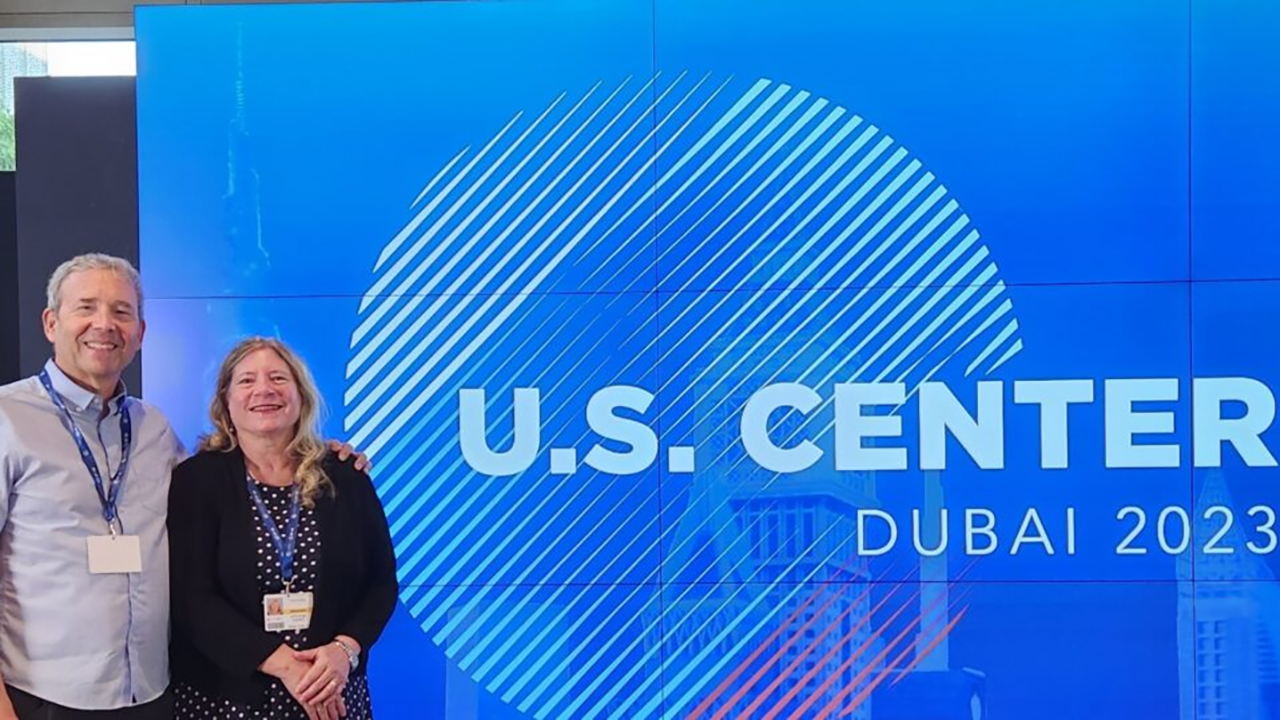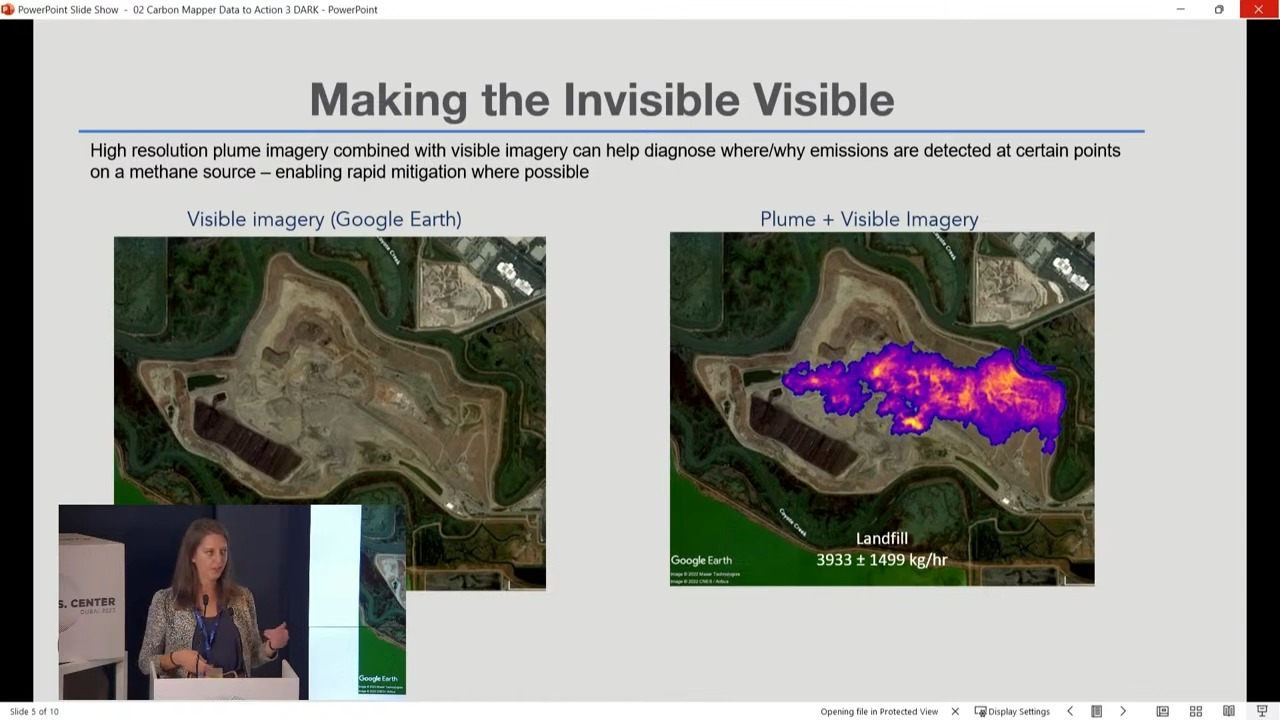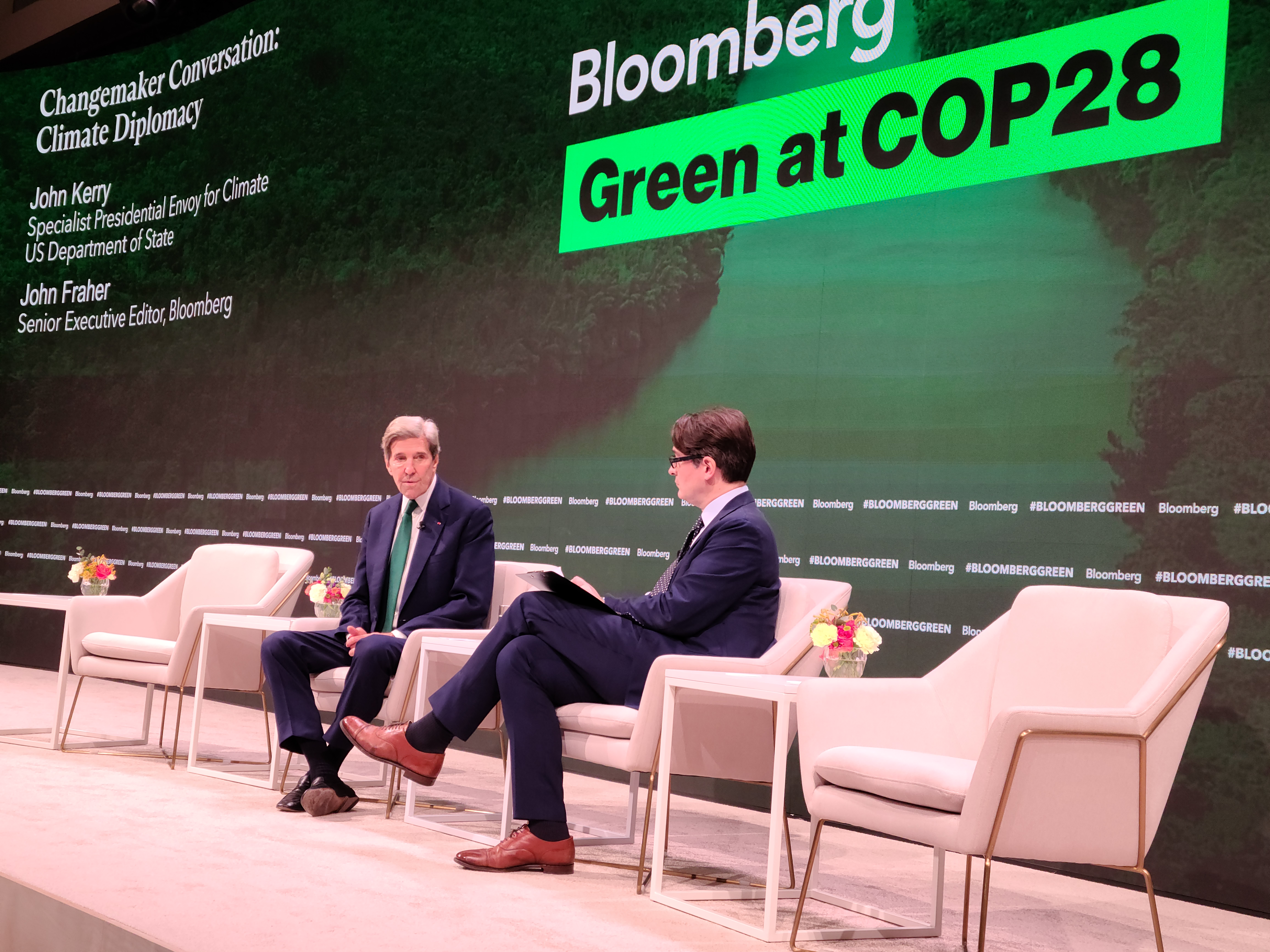
As COP28 has drawn to a close in Dubai, United Arab Emirates (UAE), Fresh Energy would like to take a moment to reflect on the profound impact and pivotal moments that unfolded during this year’s historic global climate summit from November 30—December 12. About 87,000 people from nearly 200 nations assembled in Dubai, amid war and a global energy boom in the Persian Gulf city built by the UAE’s oil wealth. Fresh Energy’s Senior Director of Science Policy J. Drake Hamilton attended this year’s global climate summit, making it her eighth year she has represented Minnesotans and Midwesterners for climate and clean energy advocacy.
This year’s negotiations by the countries that are “Parties” to the global climate treaty focused on the first global stocktake since the Paris Agreement was signed in 2015 to inventory the global progress on slashing greenhouse gas emissions, scaling up climate action financing, operationalizing a loss and damage fund for countries most affected by climate change, tracking and mitigating methane emissions, and discussing difficult-to-quantify climate damages like loss of human life, territory, indigenous knowledge, and biodiversity.
Some agreements were reached quickly—on the very first day, in fact—while others dragged through negotiations into the middle of the very last night to reach consensus. Keep reading to learn what historic climate actions were passed at this year’s COP28.

Fresh Energy on the global stage
This year, J. Drake Hamilton presented at the America Is All In Pavilion, showcasing Minnesota’s crucial role in the global fight against climate change. She highlighted our recent 100% carbon-free electricity by 2040 law that has gained international attention, as well as the roughly 46 other Minnesota clean energy and climate laws signed into law this past spring (some of which you can read about here).
J. was joined via video by Speaker of the Minnesota House of Representatives Melissa Hortman on the global stage on Monday, December 4, sharing Minnesota’s success story and how Minnesota serves as a beacon for other states and nations.
Global Stocktake finds countries must speed up decarbonization to meet 1.5° C goal
The Global Stocktake (GST) emerged as a central element of the 2015 Paris Agreement, serving as a comprehensive assessment of the world’s progress in addressing and mitigating climate change. It acts as a report card for how the world is progressing on its climate progress. The United Nations (UN) compiled relevant data and information for two years prior to issuing their final evaluation, which found that parties are not yet collectively on track to meet the Paris’ Agreement’s goal of limiting temperature increases to 1.5 degrees Celsius above pre-industrial levels.
Scaling up financing for climate action, loss and damage fund
On the very first day of COP, the U.N. operationalized a climate impact loss and damage fund to help poor and vulnerable communities deal with climate disasters. At five global meetings led by the COP28 president during 2023, 195 countries agreed on the mechanisms of the new fund. It will be run initially by the World Health Organization and a number of countries stepped forward with $700 million for the fund. But note: climate-related damages vulnerable countries may face by 2030 will be about $580 billion.
On day two at COP28 the United Arab Emirates committed to allocate $30 billion in catalytic capital to create the new ALTERRA fund, which aims to provide low-interest loans to support climate action in the Global South (countries in the southern hemisphere). The fund hopes to raise a total of $250 billion, and its ultimate goal is to ensure no one is left out of global climate progress.
Also at COP28, the Green Climate Fund got its second replenishment with a boost of six new pledges, including $3 billion from the U.S. amounting to $12.8 billion from 31 countries.
“Ultimately, world leaders, and especially business executives in the private sector, must muster up the trillions of dollars needed for a wholesale remaking of the world’s energy infrastructure,” said J. “The estimated costs and needs of adaptation are approximately 10 to 18 times greater than existing financing for adaptation.”
Big, new commitments to reduce methane pollution
COP28 showcased a big slate of actions to address methane pollution, a greenhouse gas that is 80 times more potent than carbon dioxide over its first 20 years in the atmosphere. Governments, companies, and philanthropies announced over $1 billion in new grants, with a goal of mobilizing billions more. COP28 had a methane summit early on, and six nations joined the methane pledge, which is now at 155 countries pledged to reduce methane globally by 2030.

New satellites that can measure methane pollution across the globe will help identify and enforce methane leaks, even at very low levels. The new U.S. Methane Enforcement Task Force is now using satellite imagery to locate leaks of methane, and the task force will deploy immediate enforcement to shut off—in days—the U.S. leaks. That enforcement will send a message to the rest of the world to stop their methane leaks as well.
“Methane is taking its rightful place as the biggest and fastest way to slow climate change,” said J. “These commitments underscore the growing awareness of the multifaceted approach needed to combat climate change, emphasizing the importance of addressing various greenhouse gases, including methane, to meet global climate targets.”
Recognition of the beginning of the end of the fossil fuel era
Through the very last night of COP28, a historic shift was made: The COP text explicitly identifies coal, oil, and natural gas as contributors to the climate crisis, stating that nations agree on “transitioning away from fossil fuels in energy systems, in a just, orderly, and equitable manner.”

This agreement signals a collective effort to accelerate climate action, emphasizing collaboration, urgency, and the inevitability of transition to clean energy. This agreement was negotiated late into the final night of COP28 by President Al Jaber of the UAE, who stated to all countries that the COP28 initiatives that have been passed are a climate lifeline.
What’s next?
COP28 was the most important global climate conference since Paris COP21 in 2015, and the proof of its progress will ultimately be seen when every country delivers its new climate action plans to the U.N. early in 2025. The target for all nations’ invigorated, bolder action plans must be aligned with the world’s 1.5-degree target. Greenhouse gas emissions must peak by 2025, be reduced 43% by 2030, and reduced by 60% by 2035. We must triple renewable energy capacity globally and double the annual rate of energy efficiency by 2030. In addition, we must decrease consumption and production of fossil fuels to achieve net zero by 2050.
The world’s fate will ultimately be determined by whether countries play their part to take effective climate actions.
Fresh Energy would like to thank the many delegates and elected officials that helped pass climate progress this year, notably Special Presidential Envoy for Climate John Kerry, who persuaded many nations to support the final COP28 text. We look forward to COP29 next year in Azerbaijan.
In the meantime, J. is excited to announce she was appointed by Minnesota Governor Walz to the Governor’s Advisory Council on Climate Change for a term of three and a half years. J. is one of 15 individuals from disparate places across Minnesota’s economy that will recommend bold, ambitious climate and clean energy policy levers to Governor Walz as Minnesota works to meet its decarbonization targets.
Want a deeper dive into the outcomes of COP28? Listen to J. debrief her trip on Decarbonize: The Clean Energy Podcast, and read her daily COP28 blog, complete with videos, photos, and updates during her time in Dubai. Finally, watch J. present at COP28 on the America Is All In Pavilion.
